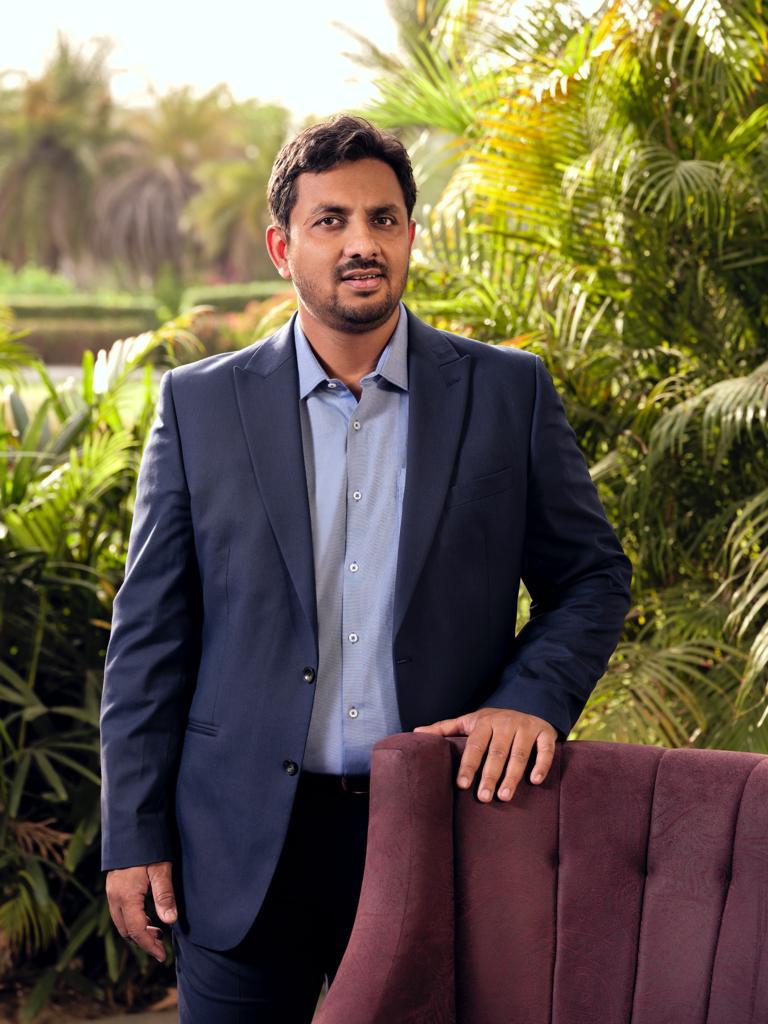RIYADH: Saudi Arabia is rapidly transforming into a regional technology hub, drawing comparisons to Silicon Valley, thanks to a wave of strategic investments and high-profile initiatives, experts have told Arab News.
At the heart of this transformation is Project Transcendence, a groundbreaking $100 billion initiative launched in 2024.
Spearheaded by the Kingdom’s Public Investment Fund in partnership with Google, the project aims to build a comprehensive artificial intelligence ecosystem within Saudi Arabia.
The initiative is set to bolster the growth of local tech startups, generate employment opportunities, and foster collaborations with global technology firms — positioning the Kingdom at the forefront of regional innovation.
Complementing these efforts is the annual LEAP technology conference, which continues to gain international attention. The 2025 edition of the event attracted over 170,000 visitors and secured investments exceeding $14.9 billion, underscoring Saudi Arabia’s growing appeal as a technology and innovation destination.
These developments are central to the Kingdom’s broader economic reform strategy under Vision 2030, which aims to diversify the economy and reduce its longstanding reliance on oil revenues.
With strategic initiatives and strong global partnerships, Saudi Arabia is cementing its place as a key player in the global tech landscape.

Noor Al-Nahhas, co-founder and CEO of UAE-based software company nybl. Supplied
Speaking to Arab News, Noor Al-Nahhas, co-founder and CEO of UAE-based software company nybl, said: “Saudi Arabia is rapidly transforming into a global technology hub, driven by Vision 2030’s ambitious agenda. The Kingdom is creating a robust ecosystem for tech startups to thrive while accelerating investments in AI and deep tech — technologies that are critical to furthering the progress of the sector.”
He added: “With the emerging developments we are seeing in the Kingdom, obstacles are few — this is the Silicon Valley of the Middle East and a rising force in the global tech landscape.”
Mamdouh Al-Doubayan, managing director of Globant for the Middle East and North Africa region, also echoed similar views. He said that Saudi Arabia’s investments in the digital infrastructure should be supported with key partnerships to achieve the desired results.

Mamdouh Al-Doubayan, managing director of Globant for the Middle East and North Africa region. Supplied
“The Kingdom is making substantial investments in digital infrastructure while fostering an ecosystem that nurtures innovation and entrepreneurship. Key partnerships are pivotal to driving this vision forward,” said Al-Doubayan.
The crucial SME factor
Vikas Panchal, general manager, Middle East, for Indian multinational technology company Tally Solutions, told Arab News that small and medium enterprises in Saudi Arabia have a huge role to play as the Kingdom continues its technological evolution journey.
“Saudi Arabia is rapidly advancing in its digital transformation journey, with SMEs playing a pivotal role in this evolution. The Kingdom’s Vision 2030 has placed technology and digitalization at the forefront of economic diversification, fostering a pro-business environment where SMEs are seen to continuously succeed in,” said Panchal.

Vikas Panchal, general manager, Middle East, for Indian multinational technology company Tally Solutions. Supplied
He added that government-backed programs like Monsha’at’s SME support initiatives as well as investments in AI, fintech and e-commerce are equipping businesses with scalable digital tools, thus allowing them to compete on a global scale.
“With streamlined business regulations and a growing interest in pursuing tech-driven efficiencies, Saudi Arabia is on track to becoming a global tech hub,” Panchal added.
Homegrown innovation
Amid these advancements, experts also highlighted potential challenges that Saudi Arabia may encounter as it strives to establish itself as a global tech destination.
Al-Doubayan noted that while the Kingdom is making significant progress in digital transformation, addressing certain challenges will be crucial to ensuring sustainable growth.
He pointed out that one of the key obstacles Saudi Arabia may face is building a robust talent pipeline to support the burgeoning tech sector.
“While the Kingdom invests in education and training, attracting and retaining skilled professionals in a competitive global landscape remains critical,” said Al-Doubayan, adding: “Additionally, navigating regulatory frameworks and ensuring a supportive environment for innovation can be complex, especially as the country seeks to balance rapid technological advancement with traditional practices.”
Panchal said that some of the challenges faced by the Kingdom include costs for digital transformation, especially among SMEs in the Kingdom.
“While large corporations are quickly embracing AI and automation, many SMEs still face challenges in transitioning from traditional to digital operations. The lack of expertise in adopting cloud-based financial management, tax automation, and real-time accounting can slow down their competitiveness,” said Panchal.
He added: “For some SMEs, the initial cost of transitioning to fully digital operations can be a challenging feat. By empowering SMEs with affordable, easy-to-use technology solutions, Saudi Arabia can overcome these hurdles and accelerate toward its goal of achieving a truly tech-driven economy.”
Al-Doubayan also expressed similar views and said that some companies are facing the risk of infrastructural limitations, as developing the necessary digital and physical infrastructure to support ambitious projects can be both time-consuming and costly.
Al-Nahhas said that Saudi Arabia should strengthen its AI capabilities to truly achieve its tech ambitions in the future.
“One critical factor to consider is the speed at which the global AI race is evolving. This will be a vital aspect to remain cognizant of as Saudi Arabia pushes forward in pursuit of meeting its Vision 2030 goals,” said the nybl CEO.
He added that Saudi Arabia should try to develop its local ecosystem for technological innovation rather than importing it from other nations.
“A striking example is DeepSeek, which in a short span has developed an AI model capable of rivalling those from Silicon Valley and disrupts the sector in unprecedented ways,” said Al-Nahhas.
DeepSeek, a chatbot developed by China, uses advanced large language models and was first launched on Jan. 10.
Upon its release, it quickly outpaced ChatGPT, becoming the most downloaded freeware app on the iOS App Store in the US.
The impressive performance of DeepSeek, coupled with its relatively low cost, has made waves globally, challenging the dominance of US-based AI models.
Thanks to its Natural Language Processing technologies, DeepSeek is able to understand, interpret, and generate human language more effectively, resulting in a 60 percent reduction in irrelevant search results compared to traditional search engines.
Al-Nahhas added: “This highlights the sheer speed of innovation in the tech sector, but also raises a fundamental question: ‘Why should we import tech when we have the resources and vision to create it in the Kingdom?’ To truly lead, Saudi Arabia must double down on homegrown innovation — over-reliance on external solutions risks dependency and could slow progress.”
During the recent LEAP conference, held in Riyadh from Feb. 9 to Feb. 12, Saudi Minister of Communications and Information Technology Abdullah Al-Swaha also talked about DeepSeek and said that it is beating all AI models.
“We have to celebrate the ChatGPT moment of 2022, but we also have to appreciate the DeepSeek moment. The world does not need polarization in the intelligent age. We need to work collectively to celebrate these advancements, where DeepSeek so far is beating all AI models,” the minister said.
Al-Nahhas added that Saudi Arabia has a massive opportunity to set global benchmarks by developing AI and deep tech in-house, and can ensure that technology is not just made for the Kingdom, but can be exported worldwide, contributing to the growth of the country’s economy.
“Competing on the global stage requires a mindset shift: Saudi Arabia is not just a consumer of technology, we are creators, driving the next wave of innovation from the Kingdom to the world,” said Al-Nahhas.
Dhruv Verma, founder and CEO of Thriwe, a tech-driven benefits as a platform company which expanded its presence to Saudi Arabia in 2023, said that stringent data protection laws may pose hurdles for foreign tech companies, making long-term private sector engagement vital for sustainable growth.

Dhruv Verma, founder and CEO of Thriwe. Supplied
“As digitalization accelerates, the risk of cyber threats and data breaches increases, emphasizing the need for robust cybersecurity measures and cross-border collaborations,” said Verma.
Arun Bruce, CEO of Dubai-based management consultancy firm TransformationX, told Arab News that Saudi Arabia should strengthen its startup ecosystem to ensure that the technology sector will thrive long term.
He also echoed the views of Al-Nahhas that the Kingdom should avoid over-dependence on international technologies, and should develop advanced innovations locally.

Arun Bruce, CEO of Dubai-based management consultancy firm TransformationX. Supplied
“The tech startup scene in KSA is certainly strengthening — with multiple accelerators and government initiatives — but still has some way to go as it competes with global and regional startup hubs,” said Bruce.
He added: “As Saudi Arabia seeks to grow, localizing its tech inputs becomes important. Companies like PIF-backed ALAT are certainly taking the Kingdom in the right direction.”






















